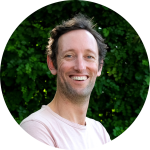EP#103: Changing the climate for wellbeing
As the UN Climate Change Conference wraps up in Bonn, our Work with Purpose guests Dr Mara Hammerle and Andrew Hudson discuss the link between climate change and wellbeing and share some innovative ideas for greening government procurement.
Climate change remains one of the world’s most complex and systemic challenges. With a profound effect on human wellbeing, experts across the world are looking for ways to reduce its impact and embed better policy solutions.
On this episode of Work with Purpose, Dr Mara Hammerle and Andrew Hudson from the Centre for Policy Development talk about embedding wellbeing in decision-making, understanding communities’ adaptive capacity when it comes to a shift away from fossil fuels, and why locally-led approaches are key to creating responses that work.
Together with host David Pembroke, they also discuss the opportunities in greening government procurement to reach Australia’s emissions reduction goals.
Discussed in this episode:
- Embedding wellbeing metrics organisations and policies
- The importance of locally-led approaches
- Adaptive capacity and what it means for communities
- The role of the Net Zero Economy Agency
- Decarbonisation procurement rules and incentives
- Balancing up-front and life-cycle costs
- Shifting to long-term thinking over short-term solutions
- Andrew’s recipe for unreasonable optimism.
Show notes:
- Measuring what matters | The Treasury
- Wellbeing government initiative | Centre for Policy Development
- Greening government report | Centre for Policy Development
- 2024 Purpose of government pulse | Centre for Policy Development
- 2023 intergenerational report | The Treasury
- Early intervention investment framework | Victoria State Government
Guests:

Dr Mara Hammerle
Dr. Mara Hammerle is an economist and energy and climate public policy analyst. She advises the Sustainable Economy Team at the Centre for Policy Development. She holds a PhD from the Crawford School of Public Policy at the ANU where she has assessed the impacts of ACT energy policy on households.

Andrew Hudson
Andrew Hudson is the CEO of the Centre for Policy Development. Andrew has over 25 years of experience in public policy, advocacy and senior leadership roles, working with NGOs, the UN, the private sector and government. Before joining the Centre for Policy Development, he was the CEO of the NGO Crisis Action, which was headquartered in New York where he led a team of over 50 people across 11 countries.